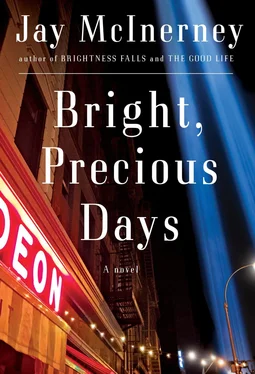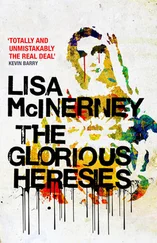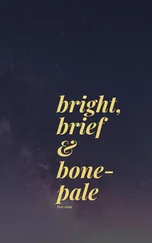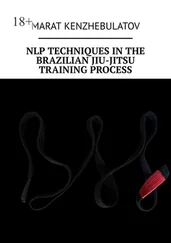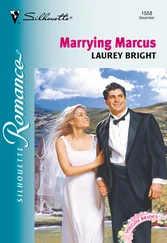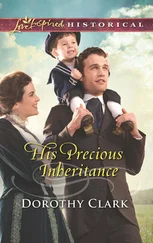After saying good night to the kids, he lay down on the bed to watch the Giants play the Cowboys and fell asleep almost immediately, waking in the middle of the eleven o’clock news — just as a photo of a young Tony Duplex with his arm around Andy Warhol flashed on the screen, and then, to his astonishment, a shot of Jack Carson, looking uncomfortable in a tuxedo, standing next to Russell, that had been taken at the PEN/Faulkner Awards in D.C. the year before; this was soon replaced by scenes of anxious Lehman Brothers employees entering and exiting their midtown office building.
—
He slept intermittently that night, and woke up exhausted, enervated at the prospect of the day ahead and all the days beyond. The children, picking up on his mood, were frightened and solicitous.
He called Washington from the office and asked if he could meet for lunch. He arrived at the Fatted Calf half an hour early and ordered a Bloody Mary. He was halfway through his second when his friend arrived.
“You look like shit,” Washington said, taking a seat across from Russell.
“That’s good, because I feel like shit,” Russell said.
“I guess you’re entitled.”
“How’s Veronica?”
“Shell-shocked. Clearing out her office as we speak. Any word from Corrine?”
He shook his head. “We talked briefly about child-care logistics. She told me she was sorry.” He shook his head derisively.
“She probably doesn’t know what to say.”
“It’s hopeless,” Russell said. “I don’t even want to talk about it. Actually, I wanted to talk to you about something else.”
“Whatever you want, coach.”
“I want Corbin, Dern to buy McCane, Slade. I think it would be a win-win situation for both sides.”
“It might make sense,” Washington said after a long pause. “We’d have to look at the books. I promise to take it under advisement if you promise never to use the phrase win-win again.”
—
As he was walking back to the office, he took a call from Hilary.
“I just wanted to tell you how sorry I am.”
“Thanks. I’m sorry I was…unkind when I saw you yesterday.”
“No, I understand. Look, I just wanted to say, if you ever need me to babysit, or anything, just call, okay?”
“Okay, thanks. I will.”
“You promise?”
“Promise.”
“All right, then.”
“Thanks for calling.”
Silver Meadows, New Canaan, CT.
10/27/08
Dear Russell:
I wanted to say how sorry I was about Jack, but really, that’s the least of it. I’m not sure how to apologize for what I did to you, but I have to if I’m going to move on. Step 9. I’m up here at Silver Meadows, once again. Clearly I didn’t learn much the last time. I thought if I tried to explain what happened, you might understand, though I don’t expect you to forgive me. But I want at least to try to make amends. Where to begin? With the failure of my third novel? Returning from my sad little six-city book tour, I still had a kind of residual celebrity, which kept my social life interesting, and I turned to journalism. Because even if there’d been a demand for my fiction, I was utterly without inspiration.
And then the planes hit the towers. Ian McEwan summed it up the next day in The Guardian: “American reality always outstrips the imagination.” Hard as it had been earlier, it was even harder now to imagine the role of fiction in this changed world. I wanted to be involved in the response to the most shocking event of my lifetime. But my various employers had their specialists: real journalists, foreign correspondents, policy experts. I tried to land an assignment in Afghanistan and then, later, Iraq. Even though I thought that war, the WMD war, was utterly fraudulent, I wanted to cover it, to swim the currents of history.
And suddenly, out of the blue, I got invited to a wedding in Lahore. The groom was from a wealthy Pakistani family, attended NYU and then became a fixture of the downtown party scene in the nineties, which is how I knew him. Always throwing parties, entertaining squads of models, sharing his drugs. He went home after 9/11 and settled down with a girl from his social class, though when I called him about the invitation, he said that the wedding festivities would resemble the New York bacchanals of his youth. “Lahore’s insane, man. It’s a party town. Come for the week. You won’t regret it.” This sounded attractive, and it occurred to me that I could turn the occasion to advantage. This could be my side-door entry into the great struggle.
I pulled together a list of contacts in Pakistan, journalists and government officials. My roommate from Amherst was an undersecretary of state, and after advising me not to go, he gave me phone numbers and briefings and deep background. I hoped to talk my way into some serious journalism about the Taliban and Pakistani politics; in the meantime, I had a single assignment for a travel piece about the city. So I embarked for Lahore, where the wedding was everything the groom had promised and more. Drugs were abundant and the festivities moved around town, from gated compounds to sprawling lofts. It’s a majestic city with a patina of elegant decay, though I quickly gravitated toward its squalor. I met an English girl, a cousin of the groom’s, and a week after the wedding the two of us were holed up in an apartment in the Gulberg neighborhood, where I discovered opium. Two weeks turned into four.
Marty Briskin eventually reported me missing. And the next thing I knew, the story was in the Herald Tribune: “American novelist missing, believed kidnapped, in Pakistan.” When I’d failed to show up for an interview with a Pakistani intelligence operative, he’d called my friend at the State Department, and when Marty called the consulate, the search was on. Meanwhile, I got a text from the groom, asking if I was okay, telling me about the Herald Trib. A day later, there was a message on a jihadist Web site from a group that claimed it was holding me.
At first, it just seemed embarrassing. But then I sensed an opportunity. I’d already done my homework on the various jihadist factions, and in several Internet cafés I researched the stories of recent hostages. I thought, at the very least, it was good for an article, so I decided to hide out for a while and see where it went. Then, oddly enough, three weeks later I actually did get kidnapped, held against my will in a squalid room in Heera Mandi, the red-light district, after trying to buy drugs. I got robbed and pistol-whipped by two thugs and locked in a room, which I escaped from through a window after twenty-four hours.
Nine weeks after arriving for the wedding, I turned up at the consulate in Lahore, disheveled, skinny and seemingly disoriented, with cuts and bruises from the beating in Heera Mandi that validated the kidnapping narrative, so I stuck to it. The debriefing at the consulate was relatively easy, the one in Washington much tougher.
It was strange, undergoing a real-life interrogation by my countrymen in a windowless conference room in Washington, D.C., about imaginary interrogations in a windowless mud-and-wattle hut in Waziristan. I was scared of these government boys, but I stuck to my story, and when this tough little CIA geek in an oversized suit really had me up against the ropes, I said, “Weren’t you the guys who claimed there were weapons of mass destruction in Iraq?” Finally it became clear that whatever the truth, I didn’t have any actionable intelligence, so they cut me loose. I got the feeling that in their eyes, the propaganda value of a story about an American journalist faking his own kidnapping was strictly negative. And in the context of the official post-9/11 narrative — the war on terror — the lie was more useful than the truth, to them as well as to me.
Читать дальше
